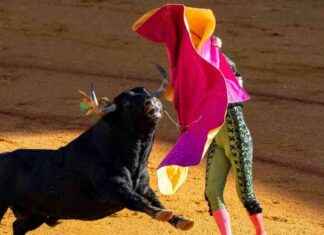Requests the entry into prison of three of those investigated who did not appear at the summons on October 6
MADRID, 4 Nov. (EUROPA PRESS) –
The Anti-Corruption Prosecutor’s Office has asked the judge of the ‘Caranjuez case’, which is investigating an alleged network of police officers and lawyers who would have offered services to former Venezuelan Government officials in exchange for money and information from Podemos, to summon five new witnesses to testify : including the former treasurer of Venezuela and Hugo Chávez’s nurse, Claudia Guillén, and a military man who was appointed to the Venezuelan presidential house, Adrián Velásquez.
The request of the prosecutors takes place after the first interrogations were held in the procedure that is followed in the Court of Instruction Number 29 of Madrid for alleged crimes of fraud and extortion. On September 30, the alleged victims of the investigated police network appeared; On October 6, a dozen defendants declared, including lawyers, national and municipal agents.
Now, according to a document to which Europa Press has had access, the representatives of the Anti-Corruption Prosecutor’s Office want to hear five other people as witnesses. The list includes the former Vice Minister of Electric Energy of Venezuela Nervis Villalobos, who would have been harmed by the alleged extortion network.
Also included are the former head of Security of the state-owned Petróleos de Venezuela (PDVSA) Rafael Reiter and the Portuguese financier Hugo André Ramalho Gois, as well as the former treasurer of Venezuela and Hugo Chávez’s nurse, Claudia Guillén, and a soldier who was assigned to the house. Venezuelan presidential candidate, Adrián Velásquez.
The request for these testimonials is part of the procedure in which –according to the police reports to which this agency had access– an alleged network of lawyers and police officers would have approached several Venezuelans who were allegedly related to money laundering activities ” in order to request money from them in exchange for asserting their supposed ability to influence public bodies” to “solve the problems” that they would have because they were investigated.
In addition to asking for money in exchange for said “influence”, the members of the network would also have been “interested” in being provided with “information on the Podemos political party and its possible links with Venezuela, among other information”, according to a report of the Central Brigade for the Investigation of Money Laundering and Anti-Corruption drafted in 2020.
Said report, furthermore, maintains that the network that is now being investigated in the Plaza de Castilla Courts is made up mainly of national and local police officers, lawyers and an ex-military officer; and would have received “millions of euros from Venezuelan citizens related to criminal activities.”
On October 6, however, the alleged members of the network denied having offered former Venezuelan Government officials services and “influence” in the Administration in exchange for money and information from Podemos; They also denied having asked for or collected money from the alleged victims or having threatened them.
In the brief to which Europa Press has had access, the prosecutors have also requested the head of the Investigating Court Number 29 of Madrid to order the admission to prison of three investigators who were summoned to appear on October 6 and that they are not presented in court. Specifically, he refers to Martín Rodil, Ralph Steinmann and José Vicente Amparan.
They have also requested that the issuance of international arrest and surrender warrants be agreed with respect to all of them as alleged participants in crimes of criminal organization, extortion, fraud, bribery, influence peddling, prohibited negotiations with public officials and money laundering.
Anti-corruption has ensured that Martín Rodil is “the central subject of the plot”. He has defined him as “a lobbyist of Venezuelan origin, presumably based in the United States, who performs functions as a security analyst.”
As he has recounted, he has several “contacts” with various Security Forces in Spain and the United States that he asserts with “high-ranking individuals” in Venezuela so that they “collaborate” with the Spanish and American authorities “in exchange for protection or conditions privileged”. “All this in exchange for the corresponding commissions,” the prosecutors have pointed out.
From the Public Ministry they have maintained that Rodil participated in “various meetings” with Venezuelan citizens investigated in the “Caranjuez case” and that, in addition, he is the “last beneficiary of companies receiving payments made by the criminal organization.”
Regarding Ralph Steinmann and José Vicente Amparan, prosecutors have indicated that they “appear to be linked” to a company that is under suspicion and that they would have been “recipients” of part of the money under investigation.
The judge must decide whether or not to accept all the steps demanded by the Prosecutor’s Office. Until now, it is pending that it also resolves the request of one of the alleged injured parties who has already testified in court: the former Vice Minister of Electricity Development Javier Alvarado Ochoa, who requested to summon – as a witness or as an investigator – the former deputy director of operations (DAO) of the Eugenio Pino National Police.








